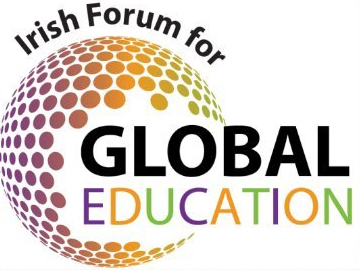With the Russian invasion of Ukraine moving into a new phase during the month of May, we have come to understand that it is unlikely to be over soon. There has never been a war that has received this level of media coverage and it is happening at close quarters with twenty four hour coverage and regular updates. People impacted and displaced by these events are now living in our midst and this brings it home to us all the more. We cannot turn away and dismiss the terrible consequences of this war and the need to keep supporting the victims. Irish schools have had a significant intake of Ukrainian students and are doing everything they can to integrate them in difficult circumstances. The flag of Ukraine flies in schools and towns throughout Ireland and the colours symbolise solidarity with a people who are living and dying in this nightmare.
There is a danger that the intensity of the war in Ukraine and the extent of media coverage obscures the fact that war and conflict remain terrible realities in many other parts of the world. This is not to suggest that we should not support in any way we can the displaced people of Ukraine. However, IFGE feels it is also important to re-emphasise the continuation of the war in Yemen and especially the impact it is having on young people and their education. This war is now in its seventh year and according to UNHCR, in a country with a population of just over 31 million, more than 400,000 people have been killed. At least ten thousand children have lost their lives and as of March 2022, 4.3 million Yemenis are internally displaced, nearly 80% of whom are women and children. The war has left twenty million people in dire need of humanitarian assistance and five million of these are on the brink of famine. We need to create an awareness of this ongoing war and call for a resolution. The fact is, however, that we don’t see this on our television and social media platforms and may not be aware of the impact on the civilian population of Yemen.
Needs mount as conflict in Yemen rages on (unhcr.org)
Henrietta Fore, head of the UN Children’s Fund said earlier in the war that every day, as the Yemeni Government coalition fights for control of the country against Houthi opposition forces, “another eight children will be killed, injured or recruited, with a child dying from a preventable cause, every 10 minutes.”
UNICEF stated in August 2021 that two million students in Yemen were out of school and that one in six schools could no longer be used due to war damage. The damage and closure of schools are threatening children’s access to education, rendering them vulnerable to serious protection concern. Parties to the conflict are making use of schools for military purposes. The UN Group of Eminent International and Regional Experts on Yemen reported in 2021 that children were being recruited, used in hostilities and detained by all sides. This is by no means a new situation but there is less attention paid to it now that war on the continent of Europe has become the main focus.
As far back as March 2018 Meritxell Relaño, UNICEF Representative in Yemen reported “An entire generation of children in Yemen faces a bleak future because of limited or no access to education. Even those who remain in school are not getting the quality education they need.” A UNICEF report entitled ‘If Not In School’ then stated ‘The journey to school has also become dangerous as children risk being killed en route. Fearing for their children’s safety, many parents choose to keep their children at home. The lack of access to education has pushed children and families to dangerous alternatives, including early marriage, child labour and recruitment into the fighting’.
If not in school | UNICEF Yemen
Since the report was published the situation in Yemen has escalated and the current situation has got significantly worse. Grave violations and attacks against children continue with further maiming and loss of life. Schools continue to be attacked are still being used for military purposes and teachers remain unpaid. Yemeni government authorities in Aden have taken a positive step towards protecting education by endorsing the Safe Schools Declaration and by establishing a Safe Schools Committee within the Ministry of Education. However more needs to be done. IFGE wants to reiterate the earlier call made by UNICEF on behalf of Yemen’s children and still not answered. ‘If Not in School’ appealed to the warring parties, those who have influence on them, government authorities and donors to:
Put an end to the war and all grave violations against children: Peace and recovery are an absolute must if children in Yemen are to resume their schooling and get the quality education they urgently need and are entitled to.
Pay teachers: Education authorities across Yemen should work together and find an immediate solution to provide salaries for all teachers and education personnel so that children can continue to learn.
Protect children’s education unconditionally: All parties to the conflict and those with influence on them need to unconditionally commit to stopping attacks against schools to protect children’s education across Yemen. Children and education staff must be kept out of harm’s way and schools must be maintained as safe zones for learning.
Increase funding for education: The international community, donors and development partners should support incentives for teachers while searching for long-term solutions to the salary crisis in Yemen, and continue supporting the education system.
IFGE reiterates this appeal and its continuing relevance to the situation in Yemen. We may not know what the flag of Yemen looks like, but we have no excuse for ignoring the plight of the people who have been living with this war for seven years. We can only wonder would this war still be going on, if it received more media coverage and was brought to our attention in the way it should be.


